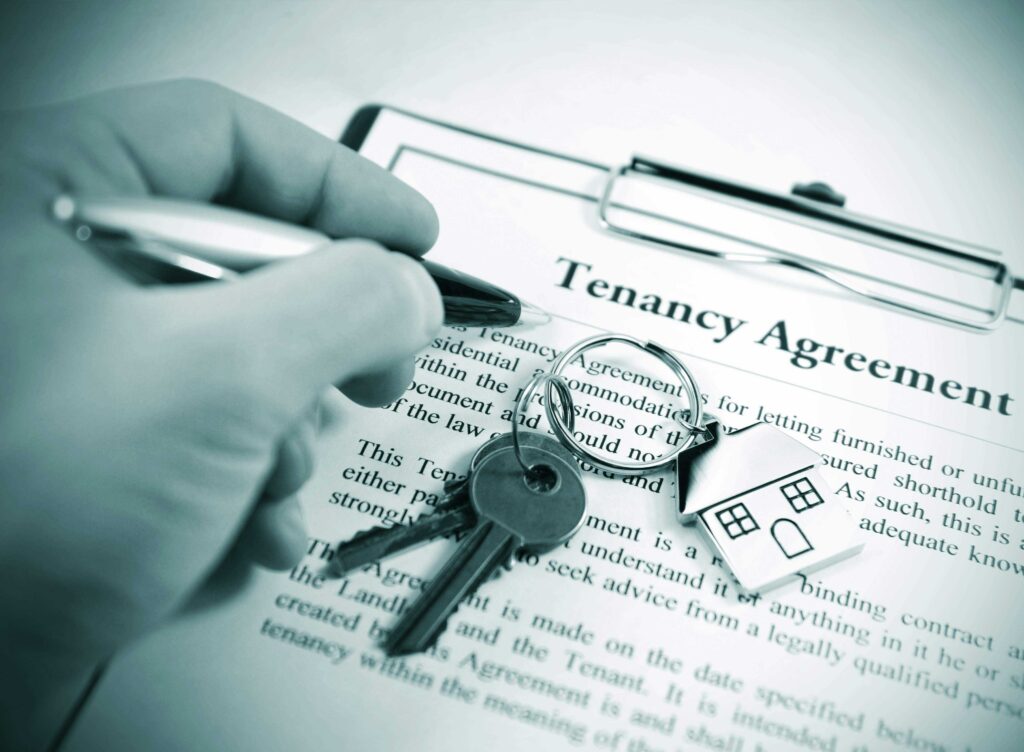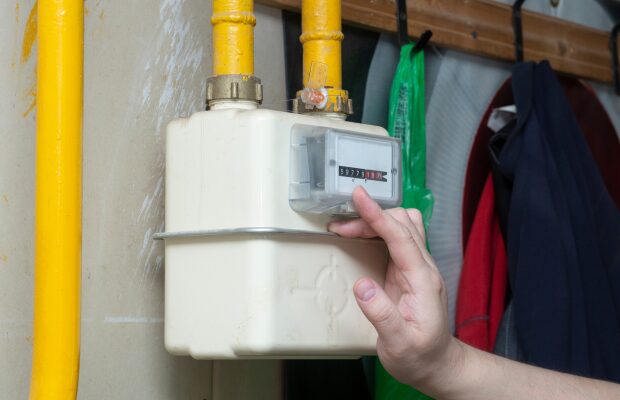As a tenant in the UK, you have certain rights.
You also have responsibilities, too.
In this tenant legislation guide, we’ll outline everything you need to know about those rights and responsibilities, and reveal a host of proposed tenant legislation changes you can expect in the future…
What is the meaning of tenant legislation?
Tenant legislation refers to the legal rights and responsibilities of landlords and tenants.
What are my rights as a tenant?
There are eight major rights you have as a tenant in England and Wales:
1. The right to live in a property that is safe and in a sound state of repair
Under the Homes (Fitness for Human Habitation) Act 2018, you have the right to live in a property that is safe and in a good state of repair.
The property’s condition must:
- Not affect your health
- Put you at risk of harm or injury
- Restrict you from making full use of your home
As well as gas and electrical safety certificates and maintenance, your landlord must also:
- Maintain drains, guttering, pipework, ventilation, and flues*
- Maintain roofing, walls, windows, and doors*
- Sanitary systems, including sinks, baths, showers, and toilets*
- Appliances they provide, including washing machines, ovens, hobs, and fridge-freezers*
- Deal with mould or damp if caused by a defect to the property’s structure
- Provide a working smoke alarm on each storey and a carbon monoxide alarm in any room with a solid fuel burning appliance
- Ensure any furnishings provided comply with fire safety regulations
- * Except where damage is the result of the tenant’s actions or inactions.
2. The right to have your deposit returned at the end of your tenancy agreement – provided you have met the terms of the tenancy agreement
At the end of your tenancy, your landlord must return your deposit if you’ve met the terms of your tenancy agreement.
Your landlord can apply to make deductions from your deposit, which you can either agree to or challenge.
Common deductions include:
- For unpaid rent
- For damage to the property
- For cleaning if the property is not returned in the same condition as it was in on the first day of the tenancy
Your landlord can’t deduct for things considered to be ‘wear and tear’ through normal use – for example, a carpet that has become worn through everyday use.
3. The right to have your deposit protected in a government-backed scheme
All tenant deposits for Assured Shorthold Tenancies (ASTs) in England and Wales must be protected in a deposit protection scheme.
Your landlord must also provide you with Prescribed Information on your tenancy and deposit, including:
- The amount of your deposit
- The address of the property you’re renting
- The name, address, and contact details of the scheme where your deposit is held
- The name, address, and contact details of the landlord, tenant, and anyone else who has contributed to the deposit
- Name & address of the managing agent
- Why they would keep some or all of the deposit
- How to apply to get the deposit back
- What to do if you can’t get hold of the landlord at the end of the tenancy
- What to do if there’s a dispute over the deposit
Deposit protection and the issuing of Prescribed Information to you and any other tenants must be done within 30 days of the date upon which your deposit is received.
4. The right to know who your landlord is
Under the Landlord and Tenant Act 1985, you have a right to know your landlord’s name and address.
This information should be included in your tenancy agreement.
However, if it isn’t, you can request the information, which must be provided by the agent within 21 days.
5. The right to live in the property peacefully and without disturbance
When you sign a tenancy agreement to rent a property, you have the right to ‘quiet enjoyment’ of the property throughout your tenancy term.
Whether expressly mentioned in the tenancy agreement or not, this right is enshrined on common law.
This means your landlord must:
- Give you minimum notice of 24 hours if they wish to visit the property
- Give you at least 24 hours’ notice if sending trades or a letting agent to visit the property
- Not harass you, verbally or in writing
6. The right to a copy of the property’s Energy Performance Certificate and to live in a property with at least an E rating
By law, your landlord must be able to provide you with a copy of your rental property’s Energy Performance Certificate (EPC).
Under Minimum Energy Efficiency Standards legislation, the property must also have a minimum EPC rating of E to be rented out legally unless an exemption has been granted.
Your landlord must also provide you with:
- A copy of the property’s gas safety certificate
- A copy of the government’s How to Rent guide
- A copy of the property’s Electrical Installation Condition Report (EICR)
7. Protection from unfair rent increases and unfair eviction
Your landlord must give you at least two months’ written notice if they wish to take possession of their rental property at the end of a fixed term tenancy.
If they wish to regain possession of the property before the end of a fixed term, they must be able to prove to a court that they have grounds to do so.
Your landlord must also:
- Notify you before they increase your rent
- Ensure any rent increase is fair and in line with average rents locally
- Give you the appropriate notice
8. The right to not be charged fees by a landlord or letting agent
Under the Tenant Fees Act 2019, your landlord or their letting agent can’t charge you any fees upon which the grant of the let is contingent, other than:
- A holding deposit, capped at one week’s rent
- A tenancy deposit of no more than five weeks’ rent if the annual rent is less than £50,000, or six weeks’ rent if it’s more than £50,000
- Your landlord can also only charge you a mid-tenancy fee for:
- The actual cost of replacing lost keys
- Late rent if overdue by two weeks or more, chargeable at 3% plus the Bank of England base rate
- Changes to the tenancy agreement that you request, chargeable at up to £50 or ‘reasonable costs’ if higher
Your responsibilities as a tenant
As well as your tenant rights, you also have several key responsibilities to comply with the terms of your tenancy agreement:
1. Taking good care of the property
You must take good care of your rental property, meaning you must:
- Not causing damage either through neglect, poor actions, or intentionally
- Report any safety issues or repairs in good time
- Your tenancy agreement will also outline any additional responsibilities which could include:
- Changing lightbulbs
- Changing batteries in smoke and carbon monoxide alarms
- Keeping the garden neat and tidy
- Maintaining internal decoration and making good things like nail and screw holes
- Following the instructions for heating systems
- Turning off the mains water supply during longer periods of absence
- Keeping the property ventilated to prevent damp and mould
- Cleaning windows
2. Paying the rent as agreed in the tenancy agreement
Your main responsibility as a tenant is to pay your agreed rent in full and on time each month.
Failure to pay your rent could put you in breach of your tenancy agreement, meaning your landlord could have grounds to evict you.
Your landlord may also be able to deduct any unpaid rent from your deposit at the end of your tenancy.
3. Paying bills and charges outlined in the tenancy agreement
If you’re responsible for paying utility bills at your rental property, you must ensure these are paid in line with the terms of your tenancy agreement.
4. Repairing or paying for damage caused by you as a tenant or visitors to the property invited by you
If you cause damage to your rental property, or people you invite do, your landlord may deduct the cost of repairs or replacing items from your deposit at the end of your tenancy.
5. Complying with the terms of the tenancy agreement on sub-letting
If your tenancy agreement forbids sub-letting, you must not sub-let any part of your rental property to anyone else without permission.
Understanding the tenancy agreement
Your tenancy agreement should contain the following standard information:
- Your name
- Your landlord’s name
- The address of the property
- The start date of the tenancy
- The duration of the tenancy
- The amount of rent payable, when it should be paid, and how
- A list of bills you are responsible for as a tenant
- A list of services supplied by the landlord (if any)
- The notice period required to terminate the tenancy
Inventories and your role as a tenant
While inventories are often seen as ways to protect landlords and their properties, they are in place for the benefit of tenants, too.
Essentially, an inventory details the condition of the property at the start of the tenancy, alongside photos, and then this is compared with the property at the end of the tenancy.
Both tenant and landlord should sign the inventory at the start and end of the tenancy and inventories are usually performed by independent clerks.
A good inventory should work for both landlord and tenant and reduce the chance of a dispute over damage or the tenancy deposit due to the fact it presents clear evidence.
Changes to tenant legislation you need to know about
1. The Renters Reform Bill
The Renters Reform Bill could become law in 2022 and would see:
- The abolishment of ‘no fault’ evictions, meaning your landlord would need to seek possession of their rental property through the courts at the end of a fixed term tenancy, though this is currently under review.
- Revisions to section 8 evictions, giving your landlord more grounds to seek possession
- Lifetime deposits introduced that travel with you from property to property
- The potential introduction of a public facing database of landlords
2. The Dogs and Domestic Animals Accommodation Protection Bill
The government is keen to provide tenants with pets more options to rent properties privately.
Under the Dogs and Domestic Animals Accommodation Protection Bill, tenants would need to provide a certificate of responsible guardianship if requesting to keep a pet.
There would be no automatic right to keep a pet if the Bill becomes law, but landlords would need to prove a pet was a risk to others if the tenant has a guardianship certificate and they wish to decline the tenant’s request.








